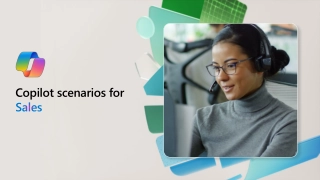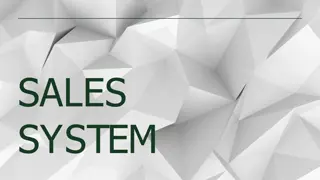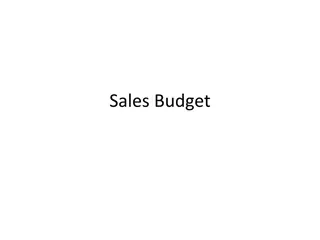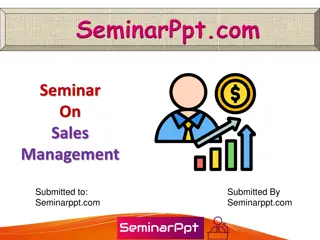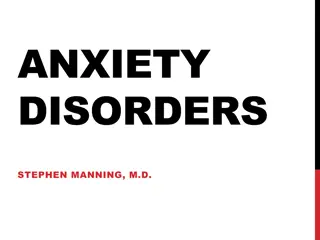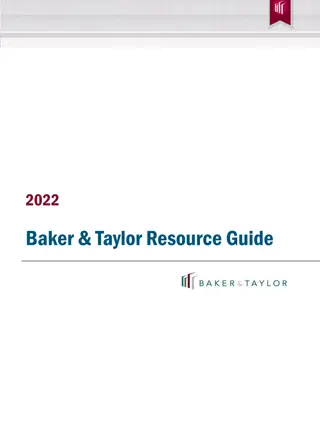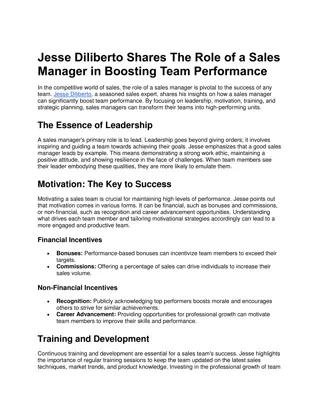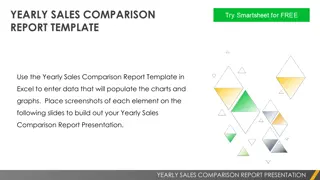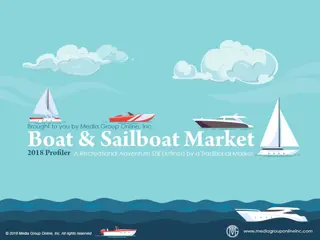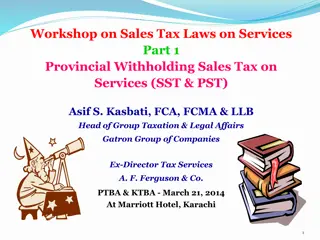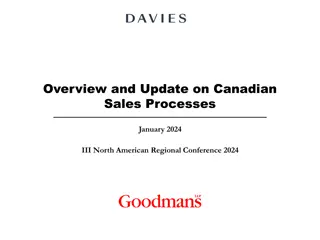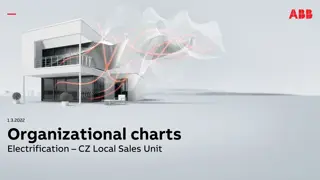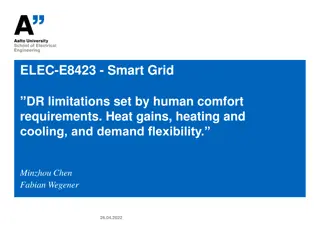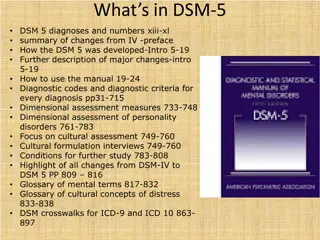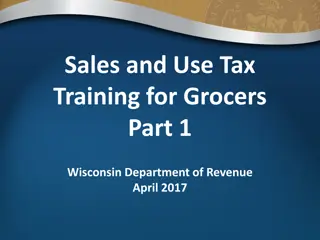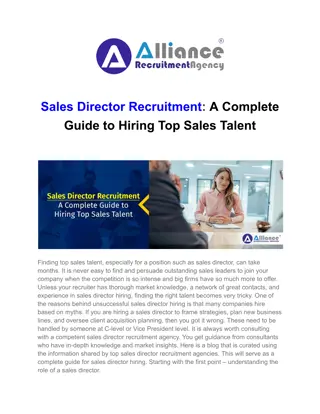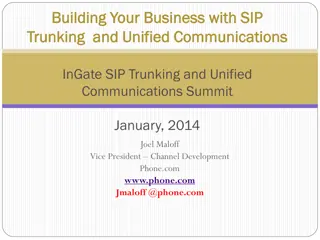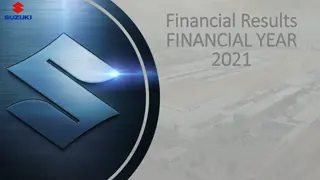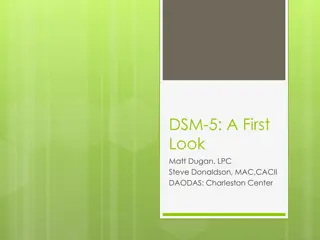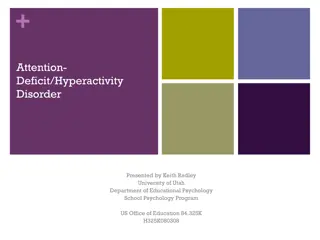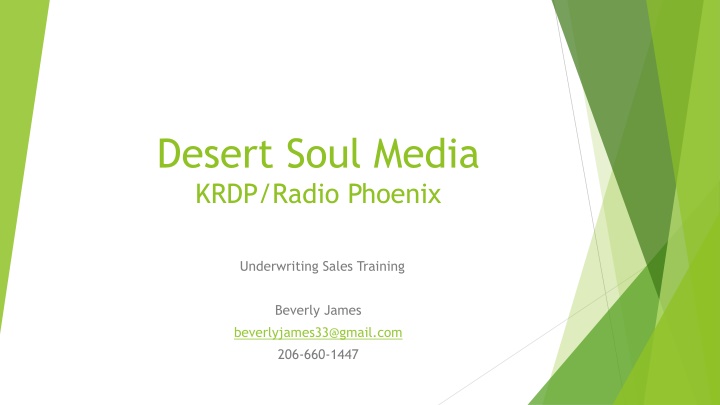
Effective Underwriting Sales Training for Radio Phoenix and Desert Soul Media
Elevate your underwriting sales skills with this comprehensive training program covering the sales process, unique selling propositions, and practical guidelines for success. Discover the power of underwriting and why supporting Radio Phoenix is essential, and learn how to connect with your audience and maximize sales opportunities. Join us for a transformative training experience!
Download Presentation

Please find below an Image/Link to download the presentation.
The content on the website is provided AS IS for your information and personal use only. It may not be sold, licensed, or shared on other websites without obtaining consent from the author. If you encounter any issues during the download, it is possible that the publisher has removed the file from their server.
You are allowed to download the files provided on this website for personal or commercial use, subject to the condition that they are used lawfully. All files are the property of their respective owners.
The content on the website is provided AS IS for your information and personal use only. It may not be sold, licensed, or shared on other websites without obtaining consent from the author.
E N D
Presentation Transcript
Desert Soul Media KRDP/Radio Phoenix Underwriting Sales Training Beverly James beverlyjames33@gmail.com 206-660-1447
Welcome and Thank You! What we ll cover: o Introductions all around o How we ll engage- lots of interaction please! Raise your hand or wave at me anytime you need more info! o Questions before we start?
Agenda What is underwriting and what are you selling? Sales Process Unique Sales Proposition for Desert Soul Media Let s practice! Copy Guidelines Questions
What the heck is underwriting? An underwriting spot, known as sponsor credit is an announcement made on public broadcasting outlets, especially in the United States, in exchange for funding. These spots usually mention the name of the sponsor and can resemble traditional television advertisements in commercial broadcasting only to a limited extent. Under the terms of a public broadcaster's license from the Federal Communications Commission, such spots are prohibited from being promotional (such as making product claims, using superlatives, or being more than 30 seconds long) or making any sort of "call to action .
What are you selling? Why should people support Radio Phoenix? Jazz radio- unique American music form Local focus- harder and harder to find local coverage Diverse audience- hard to reach audience Spending power of audience Cultural connection- one of few places where people of different cultures come together Only Black owned FCC license in Arizona International reach- world wide Diverse programming- wouldn t exist without public media Talk, sing, connect- slogan to be used.
Its your Audience! Connection to community Authenticity Credibility Association Non-cluttered environment Halo Effect of public radio underwriting
Sales process overview Prospecting Getting an appointment Needs analysis Successful schedules Creating and presenting a proposal Follow up
Prospecting If you can identify businesses, non-profits and government agencies that are in sync with your audience, your chances of success are much greater. Prospecting is all about preparation first. The more you know about them going in, the more knowledgeable you ll sound. It s good to start with warm leads Then comes the dreaded cold calling.
Prospecting Who are the businesses and non-profits who have the most affinity with your audience? Who has the most capacity to spend with you and how much is that? What are the other local media options in Phoenix? Where would you fit in with those other choices? Who has done business with you before and why? Chamber of Commerce and community connections Board members- who do they know? Who advertises on other radio stations/other Black media options?
Prospects Current sponsors Native Health Gifts anon- for people in recovery-resources ARG Cultivators business consultants for black owned businesses West side blues and jazz Good prospects: All small businesses community based Look at past sponsors- grant funders for non-profits Community service organizations Health care providers- Aqueelah would be a specialist Education- Althea Hospitality Industry- hotels Entertainment venues- Leah would be good on this
Prospects Local businesses- Leah would like to reach out to some of these Religious organizations- Calvin Fashion Beauty- nails, hair, dentistry Restaurants- Jennifer Travel agencies- Jennifer Non-profit organizations Aqueelah Cultural-specific organizations- immigrant groups- Fabrice Credit Unions/banks Soccer clubs Super bowl coming next year Local First stores Black newspaper- look for leads PHX
Six Levers of Influence- convincing others to say yes. The Six Levers of Influence were created by Robert Cialdini, Regents' Professor Emeritus of Psychology and Marketing at Arizona State University. He published them in his respected 1984 book "Influence: The Psychology of Persuasion. Reciprocity Commitment and Consistency Social Proof Liking Authority Scarcity
Levers Reciprocity- As humans, we generally aim to return favors, pay back debts, and treat others as they treat us. This can lead us to feel obliged to others because we're uncomfortable with feeling indebted to them. Commitment and Consistency- Cialdini says that we have a deep desire to be consistent. For this reason, once we've committed to something, we're then more inclined to go through with it. Social Proof- This principle relies on people's sense of "safety in numbers . We're particularly susceptible to this principle when we're feeling uncertain. Liking- People would rather do business with people they like, are like them or relate in ways that are comfortable for them.
Levers Authority- We feel a sense of duty or obligation to people in positions of authority. Therefore, most of us will do most things that our manager requests. Being an authority on a topic can also provide influence on others. Scarcity- This principle says that things are more attractive when their availability is limited, or when we stand to lose the opportunity to acquire them on favorable terms.
Getting an Appointment When you first reach out to a new business your goal is to get an appointment. It takes a lot of calls and emails to get an appointment so be prepared to find multiple ways to get through the clutter. Don t take it personally! Today it takes at least 7 or 8 attempts before you cut through the clutter. Remain professional and upbeat. Use the Levers of Influence in your communications. Look for other ways to connect- referrals, social media, board members, shared volunteer activities.
Lets practice! Each of you will write two scripts, one for if the person answers the phone and one for if they don t. You have ten minutes. Example of using a lever of influence: Social Proof Calling ABC University Hi my name is Beverly James and I m with Radio Phoenix. We are public radio tailored to meet the needs of underserved communities in Phoenix and Arizona. Educational institutions like yours have long had huge success by using public radio to reach targeted audiences like ours. I m hoping to find a time to meet with you and explore partnership ideas that work for both of us. We can help bring you new students while you are supporting our mission. Do you have any time next week? Thank you!
Needs Analysis It s all about them! When you get an appointment, your goal is not to sell a package, it s to learn about their business. Come curious and ask a lot of questions. Listen deeply and write things down so you don t forget! Ask, don t tell. What kind of questions do you think you should ask?
Needs Analysis- What you want to learn: 1. What are the prospects business challenges? - If owner, what is their story? If employee- how did they get there and how long have they been there? 2. Who are they trying to reach, and do they think they are they being successful? 3. How far will people travel to come to their business or organization? 4. What is a customer worth to them? New vs. existing? This will provide insight into their budget. 5. Are they keeping their current customers or suffering attrition? What is causing that attrition? 6. What are their marketing goals? Anything new on their horizon? 7. What is their biggest frustration with their current marketing? 8. What media do they use and in what proportion of overall budget? 9. What is their spending capacity with you? Overall budget?
Bonus Question: What is the biggest misconception people have about you and/or your organization?
Effective Scheduling Radio is a reach and frequency medium. The best schedules concentrate the force into somewhat limited time periods. The goal is for as much of your audience to hear about your sponsor as possible- and as many times as possible. How long do you think people listen to the radio? To your station? According to the Radio Advertising Bureau, adults listen to an average of 11.4 hours of radio per week. And that means multiple stations. Most public radio stations have an average time spent listening of under 4 hours per week. What does that tell you about how many spots you should air to be effective?
Building a Proposal The best proposals have four parts: 1. Client goals- this reflects what you learned in your needs analysis. 2. How your station can help them achieve those goals- this is where you get to talk about your station. 3. Recommended schedule- offer at least two options. 4. Sample script- it s important that the client understands public radio underwriting guidelines.
Building a Proposal Client Objectives: Expand ABC University s reach into the eastern Phoenix zip codes in order to enhance diversity at the University. Promote Open House events in the eastern Phoenix area. Attract more new students into the Masters of Education Program. Gain traction in the Black and Brown Communities for long term student retention.
Building a proposal Why Radio Phoenix? As the only Black FCC license holder in the Phoenix area, Radio Phoenix has developed a strong following just to get where we are. Our listeners believe in us- and they will believe in you. The Halo Effect of Public Media sponsorship shows that listeners tend to believe that sponsors are the good guys . People want to do business or support the businesses that support their station. Desert Soul Media was founded on the principals of education for youth; there is strong affinity with ABC University s Education program. Connection to the Community: No other station can match the strength of Radio Phoenix in the BIPOC communities of eastern Phoenix. Value: Radio Phoenix offers sponsors the best value in Phoenix radio. Your money goes a long way!
Building a Proposal Recommended Schedule: Here are two options for ABC University. The first is a strong frequency schedule designed for Open House events. It would air for two weeks leading up to the event. 6 X Monday-Friday 6am-10am 6 X Mon-Fri 10am-3pm 6 X Mon-Fri 3pm-7pm 10 X Monday-Friday 7pm-Midnight 6 X Saturday- Sunday 6am-7pm 6 X Best Time Available Monday-Sunday at no charge Total of 40 announcements per week; 80 over two weeks Digital Element: Insert here Total Investment: $680
Building a Proposal Recommended Schedule: General Branding- This would be an underlying schedule that airs one week per month, 12 months per year. 4 X Monday-Friday 6am-10am 4 X Mon-Fri 10am-3pm 4 X Mon-Fri 3pm-7pm 5 X Monday-Friday 7pm-Midnight 4 X Saturday- Sunday 6am-7pm 4 X Best Time Available Monday-Sunday at no charge Total of 25 announcements per week In addition, ABC University would receive a block ad on the home page of KRDP and Radio Phoenix during the same week each month. Total Investment: $275 per month
Building a Proposal Sample Scripts: Here are two sample scripts. Open House: Support for Radio Phoenix comes from ABC University s Masters of Education program announcing an open house event Saturday April 9th at 2pm. Those interested in making a difference in their communities by improving education outcomes are welcome to attend. Registration at ABC University.edu slash education. General Branding Support for Radio Phoenix comes from ABC University, seeking a more diverse student body that reflects the greater Phoenix community. Information on scholarship programs for both undergraduate and post graduate degrees as well as certification programs can be found at ABC University dot edu.
Copy Guidelines Writing good copy will serve your client and your listeners. NFCB offers a comprehensive guide to underwriting language. These four basic principles will help public broadcasters avoid problems: 1. Respect and serve your audience. If you air commercial-sounding language, your listeners will notice, and they will not be happy. Without an audience, your station serves no purpose, particularly as a Noncommercial Educational (NCE) licensee. 2. Understand the FCC s rules and regulations and, perhaps more importantly their intent. 3. Establish station underwriting guidelines in writing and make sure everyone on staff understands them. 4. Abide by your guidelines.
Tracking activity Sales is a numbers game. Keep track of yourself and your activity. Be disciplined, even when it s hard. Even when nobody returns your call. Set aside time each week to do research on new prospects. Use a simple tracking system- Weekly activity report Who you called each week Who you talked to or saw each week What business you wrote each week What business you lost each week. Keep the funnel full! Projection worksheet
Questions? Thank you for spending this time with me! Feel free to call me for information, advice or a pep-talk! Good luck to all of you! Beverly James beverlyjames33@gmail.com 206-660-1447

